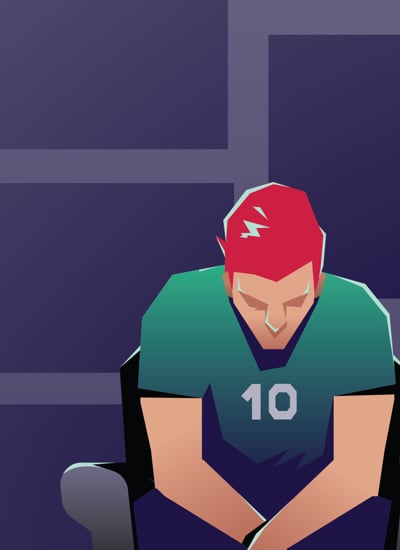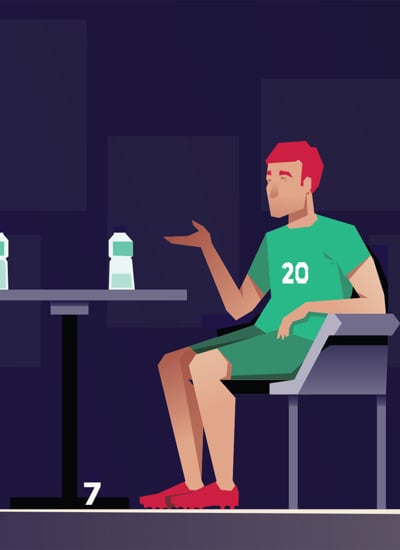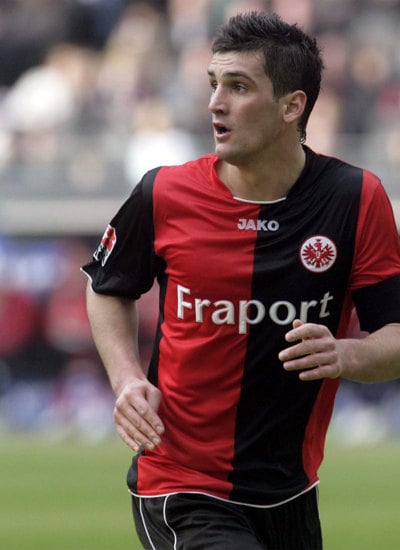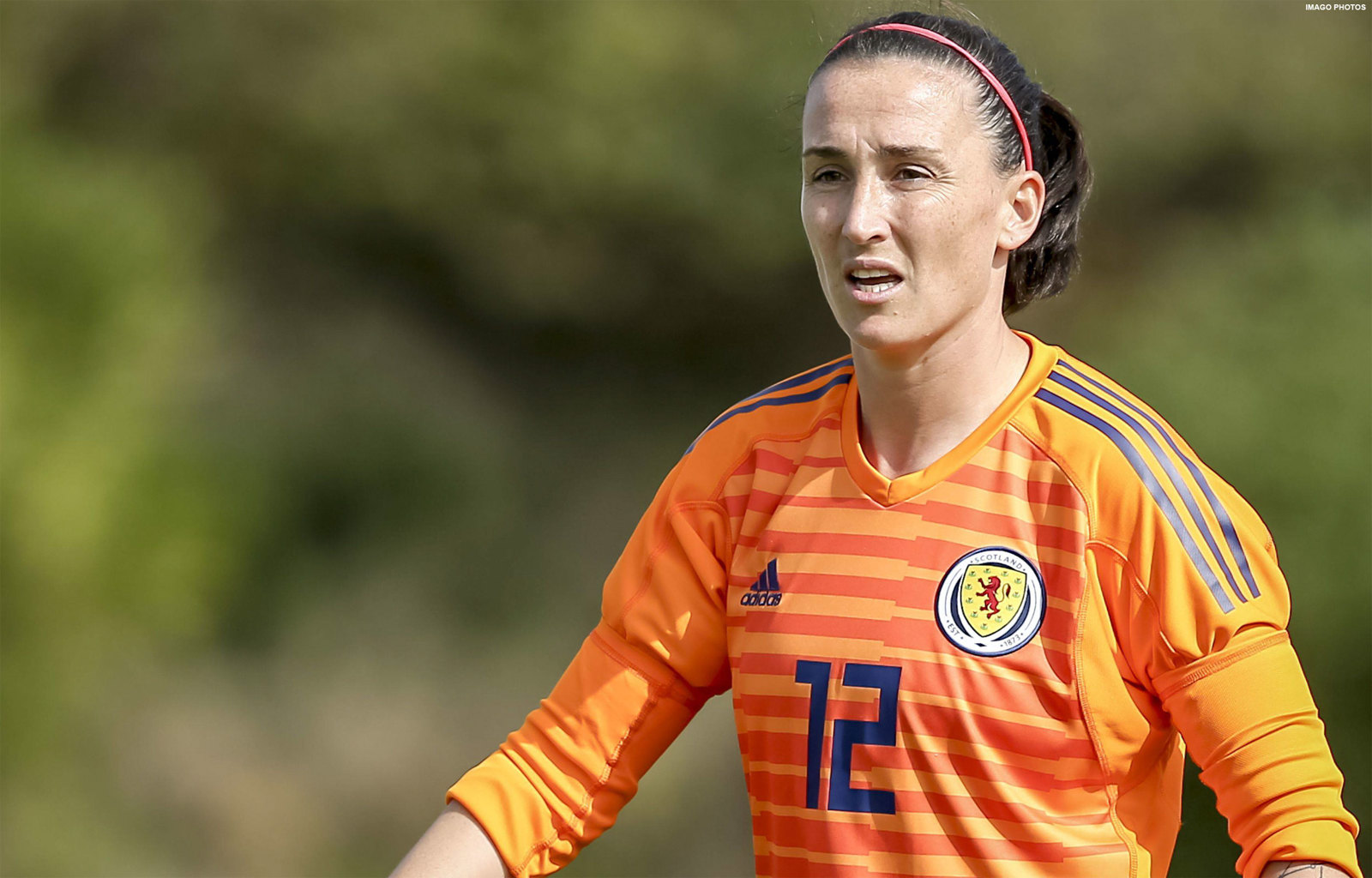
The 35-year old goalie for Swedish team Vittsjö lost her partner, Sarah, to meningococcal meningitis when she was just 22-years-old - a trauma that has deeply affected her. While she reached a semblance of normality in her life where she could be happy and functional, it wasn’t until she started talking with a psychologist last year that she began to understand how prevalent her illness still was.
Through FIFPRO, Shannon shares the story of her recovery, in the hope that those in a similar situation – especially after the strain of Coronavirus – recognise that they deserve help in their own journey to mental wellness.
"The problem with dealing with mental health in football is that there’s so much pressure to be on top form all the time that you can’t just take a break. If you twist your ankle then yeah, you can’t train for a while – there are no questions asked, you need to rest and come back when your body is ready."
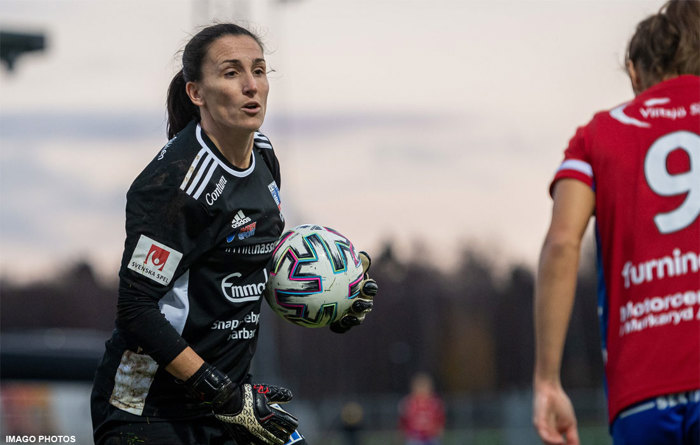
"However, there were days that my mind wasn’t ready; days where I really couldn’t perform because I felt so low, but I got up and did it anyway. This opened me up to so many potential physical injuries – because mentally I just wasn’t there. I was locked in my own head."
"There’s not enough awareness raised of mental health in the football industry, and although there might be help available to us, it’s not obvious how to access it. We need to start normalising that it’s okay to feel down. I think a lot of people feel they don’t have a right to be depressed, because comparatively, nothing bad has happened to them, but once you start accepting that your feelings are valid and that you deserve to get better - that’s the biggest step."
"It wasn’t until December 2019 that I took this step myself. Emotionally I had hit rock bottom, and together with my family and my wife – I decided that I had to seek the help of a psychologist. I had my first session in February 2020, and then travelled to Spain for a match with the Scotland National Team. By the time I returned everyone’s world was just on the brink of this crazy change with Coronavirus – but for me it was a positive transformation that lay ahead."
“The problem was that I just pushed on with training and coaching and I just kept telling myself that I wasn’t bad enough to need help”
"I've tried to seek help a few times in the past, and it just didn’t work for me. Looking back now, I realise that I probably only ever opened up halfway – I wasn’t lying, but I definitely wasn’t sharing the whole truth. It’s difficult to do, because when you’re struggling there’s a lot of things that you’re ashamed of, and you’ve buried them so far down you almost forget that you’re hiding them in the first place."
"In 2008 when my partner passed away, I was absolutely devastated – it was the darkest hole that I could ever have imagined. I just thought that was it, I had found love and then it was gone and at 22 years old I just decided that I didn’t deserve happiness. In the past 13 years, I definitely have moved on from there – although it was a struggle. I had a real unhealthy relationship with alcohol, and I suffered from bulimia but as an athlete, I didn’t let this get in the way of my life."
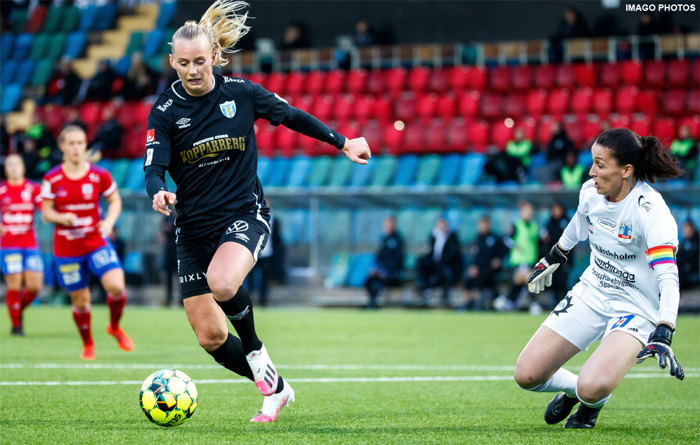
"At that point, football was my saviour. I could be really struggling, but then I was like I need to get it together for the next day, and then the next day and so for years that’s what kept me going and I loved it. I was committed, I never missed training, I was a positive teammate and yeah it brought me to a certain level of wellness."
"The problem was that I just pushed on with training and coaching and I just kept telling myself that I wasn’t bad enough to need help. If I was still getting up every day, going to football and living my life then I was fine. It’s taken me until today to realise that this just wasn’t true."
"Even in the context of football, I felt anxiety and depression, the struggles just manifested in different ways. Even when I held the spot of first choice ‘keeper I couldn’t enjoy it because I was plagued with the fear of losing my position – of not being good enough. Now I realise that this was something that I applied to my whole life."
“one session in, I realised that only I could take charge - the psychologist could give me the tools to build myself up, but she wasn’t going to fix me”
"That’s the main difference that therapy has made for me. My career hasn’t changed much – I’ve still never played a competitive match for Scotland, and I spend a lot of time on the bench for my club – but I view it differently. I take a lot of pride in being a good teammate; I’m a supportive goalkeeper partner; and I play an important role within the national team – even if that’s not on the pitch. When I do retire one day, I will hold these things really dear to my heart because I like to think that everyone I've crossed paths with will speak highly of me as a human being – and that's important to me now."
"I needed that push from my family to start therapy, but one session in, I realised that from then on only I could take charge - the psychologist could give me the tools to build myself up, but she wasn’t going to fix me. To start with I found it really frustrating, and after a month I was looking at myself and wondering why I hadn’t made any progress – but in hindsight I realised that I had. My growth had already begun, I just needed to take a step back to appreciate it."
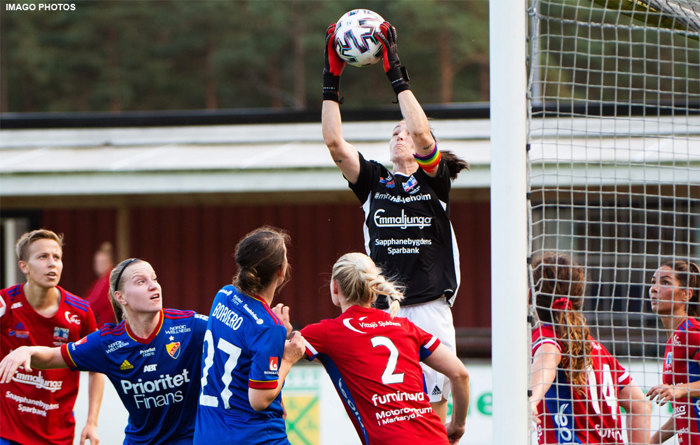
"It’s like a workout regime. Three days in you think “man I really hate this”, and after a few weeks you don’t really notice much of a difference and you just think it’s not worth the work. However, if you really stick to it, and really commit yourself to the change – over time you’ll start to see the effects, and you’ll feel better."
"It’s now been 16 months, and I couldn’t be prouder of what I have achieved. Before when I was “getting better” I always put it down to external factors, but this time I know it was I that put in the work; it’s my triumph and taking the credit for my own progress is something I have earned. However, the journey is not over. As every athlete knows, to stay at the top of your game you need to put the work in daily. You can’t just slack off for a month and expect to be in the same shape as you were when you were hitting the gym every day."
"Your mental health is no different – it’s a constant uphill battle, and when you get to the top it’s just as much work to stay there, but it’s worth it. It’s not going to be easy and there will be days you just want to break down and give in – but just keep pushing towards the next goal. Celebrate the little victories and the bigger ones will come. It is worth it and so are you – you just need to fight for it."
